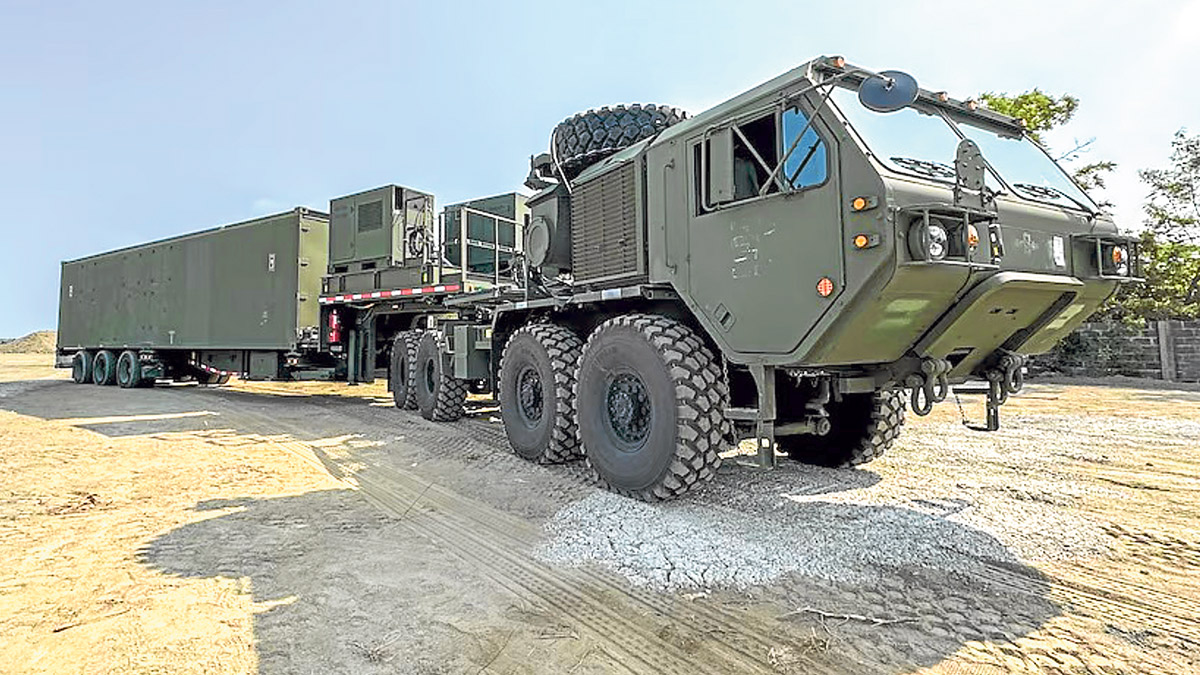No live fire drills for US ground-based missile during Balikatan—AFP

‘LANDMARK DEPLOYMENT’ The US Army’s Typhon Mid-Range Capability missile system arrived at an undisclosed location in northern Luzon on April 11 for the “Salaknib” exercises. —USARPAC
MANILA, Philippines — The United States’ newest ground-based missile will not be used for live fire drills during the Balikatan war games, the Armed Forces of the Philippines (AFP) said on Tuesday.
“There will be no live-fire exercise for the [Typhon] MRC (mid-range capability) missile system,” Trinidad said in a regular AFP press briefing.
Training for logistics, mobilization
However, Trinidad said there will still be training on mobilizing the ground-based missile system capable of firing Tomahawk and SM-6 missiles.
READ: Coast guard teams, newest missile system in PH-US drills
Lt. Col. Brian Block, a U.S. Marine Corps spokesperson, said deploying the missile system in the Philippines is a “good training opportunity” for both forces regarding logistics.
Article continues after this advertisement“There are a lot of lessons to be learned about bringing the system over itself,” Block said in the same briefing.
Article continues after this advertisementProvocative
Naval News said that, based on its reported location in Northern Luzon, the missile could reach the Chinese coast and various People’s Liberation Army bases in the South China Sea.
Chinese foreign spokesperson Lin Jiang expressed Beijing’s strong opposition, saying that this “exacerbates tensions in the region and increases the risk of misjudgment and miscalculation.”
“We urge the US to earnestly respect other countries’ security concerns, stop stoking military confrontation, stop undermining peace and stability in the region, and take concrete actions to reduce strategic risks,” Lin also said in a briefing on April 18.
READ: Injured Navy crew recount water cannon ordeal
“The Philippines needs to see and be mindful of what the US is truly after…” Lin further said.
This development comes amid mounting tensions between Manila and Beijing in the West Philippine Sea.
On March 23, the Chinese coast guard’s water cannon assault caused injuries to three Navy personnel in what the Philippine military deemed to be the worst escalation of the incident in the western section of the country’s exclusive economic zone.
Beijing asserts sovereignty in the entire South China Sea, including most of the West Philippine Sea, but its claims have been effectively invalidated by the July 2016 arbitral tribunal ruling that stemmed from a case filed by Manila in 2013.